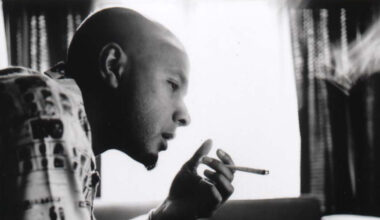The 2020 self-titled debut album from Working Men’s Club won universal acclaim, but their follow-up, ‘Fear Fear’, is arguably even better – a glorious collision of “scuffed” electropop, clubby energy and outright bangers. Frontman Syd Minsky-Sargeant reveals its story
Want to read more?
Sign up to Electronic Sound Premium to gain access to every post, video, special offers, and more. 100%, all you can eat, no commitment, cancel any time.
Already a premium member? Log in here






